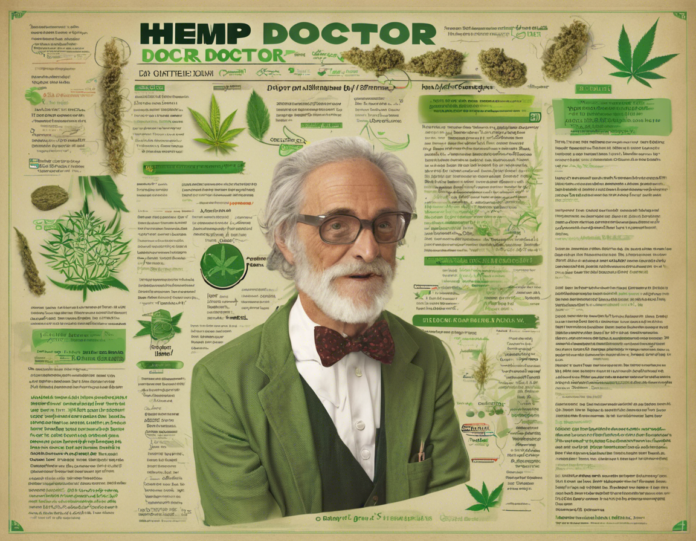CBD and hemp products have gained immense popularity in recent years due to their potential health benefits and non-psychoactive properties. However, with so many options available in the market, it can be overwhelming to navigate through the various products and understand their differences. In this comprehensive guide, we will delve into the world of CBD and hemp products, explore their benefits, types, uses, and provide insights into how to choose the right products for your needs.
Understanding CBD and Hemp
CBD, or cannabidiol, is a chemical compound derived from the hemp plant. Hemp belongs to the Cannabis sativa family but contains minimal amounts of THC, the psychoactive compound found in marijuana. CBD is known for its potential therapeutic properties, including pain relief, anti-inflammatory effects, and anxiety reduction, without causing a “high.”
Hemp refers to the non-psychoactive varieties of the Cannabis sativa plant, primarily cultivated for industrial purposes, such as textiles, paper, food, and biofuels. Hemp-derived products contain high levels of CBD and low levels of THC, making them legal and safe for consumption.
Types of CBD and Hemp Products
1. CBD Oil/Tinctures
- CBD oils are the most common form of CBD products, where CBD is infused into a carrier oil (such as coconut or hemp seed oil) for sublingual use.
- They come in various concentrations and are easy to dose.
2. CBD Capsules
- CBD capsules contain CBD oil in a convenient pill form.
- They offer pre-dosed amounts of CBD for easy consumption.
3. CBD Topicals
- CBD topicals include creams, lotions, balms, and salves infused with CBD.
- They are applied directly to the skin for targeted relief of pain and inflammation.
4. CBD Edibles
- CBD edibles are food and beverage products infused with CBD, such as gummies, chocolates, and beverages.
- They provide a discreet and tasty way to consume CBD.
5. Hemp Flower
- Hemp flower refers to the buds of the hemp plant, which can be smoked, vaped, or used for making tea.
- It may contain varying levels of CBD and other cannabinoids.
6. CBD Isolate vs. Full-Spectrum CBD
- CBD isolate contains pure CBD without other cannabinoids or THC.
- Full-spectrum CBD contains a wide range of cannabinoids, terpenes, and a small amount of THC (<0.3%), which may enhance the therapeutic effects through the entourage effect.
Benefits of CBD and Hemp Products
- Pain Relief: CBD may help alleviate chronic pain and inflammation.
- Anxiety and Stress Relief: CBD has shown promise in reducing anxiety and promoting relaxation.
- Improving Sleep: CBD products may aid in improving sleep quality and addressing insomnia.
- Neuroprotective Properties: CBD has neuroprotective properties that could benefit conditions like epilepsy and multiple sclerosis.
How to Choose Quality CBD and Hemp Products
- Choose Organic: Opt for products made from organically grown hemp to avoid exposure to pesticides and other harmful chemicals.
- Check for Third-Party Testing: Look for products that have undergone third-party testing for potency and purity.
- Consider Extraction Methods: CO2 extraction is considered the gold standard for producing high-quality CBD products.
- Read Customer Reviews: Check customer reviews and testimonials to gauge the product’s effectiveness and quality.
- Start with Low Dosage: If you are new to CBD, start with a low dosage and gradually increase until you find your optimal dose.
Frequently Asked Questions (FAQs)
1. Is CBD legal?
Yes, hemp-derived CBD containing less than 0.3% THC is legal at the federal level. However, regulations may vary by state.
2. Will CBD make me high?
No, CBD is non-psychoactive and does not produce a “high” effect, unlike THC.
3. How long does it take for CBD to work?
The onset of effects varies depending on the product and individual factors, but it typically ranges from 15 minutes to an hour.
4. Can you overdose on CBD?
CBD is generally well-tolerated, and overdosing is rare. However, taking excessive amounts may lead to side effects like fatigue or diarrhea.
5. Can I fail a drug test with CBD products?
While unlikely, it’s possible to test positive for THC if you consume large amounts of full-spectrum CBD products due to trace amounts of THC.
In conclusion, CBD and hemp products offer a natural alternative for various health concerns. By understanding the different types of products, their benefits, and how to choose high-quality options, you can make informed decisions to incorporate these products into your wellness routine. Always consult with a healthcare professional before starting any new supplement regimen to ensure it is safe for you.





